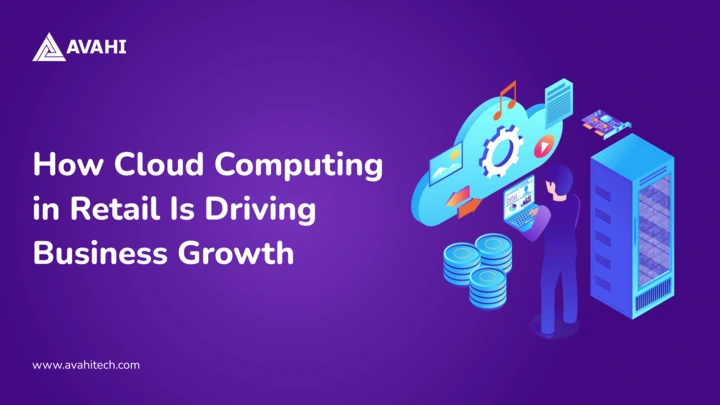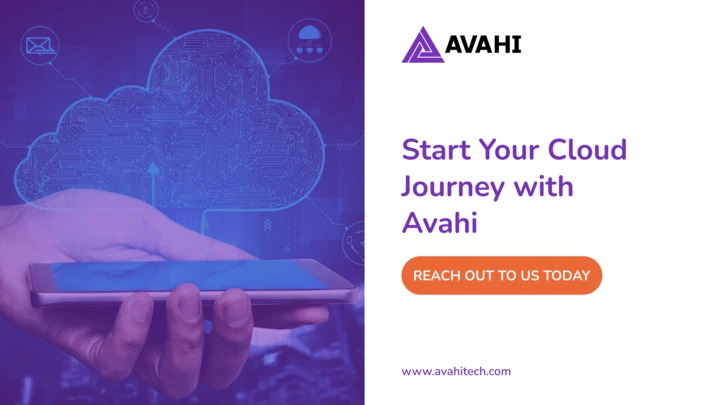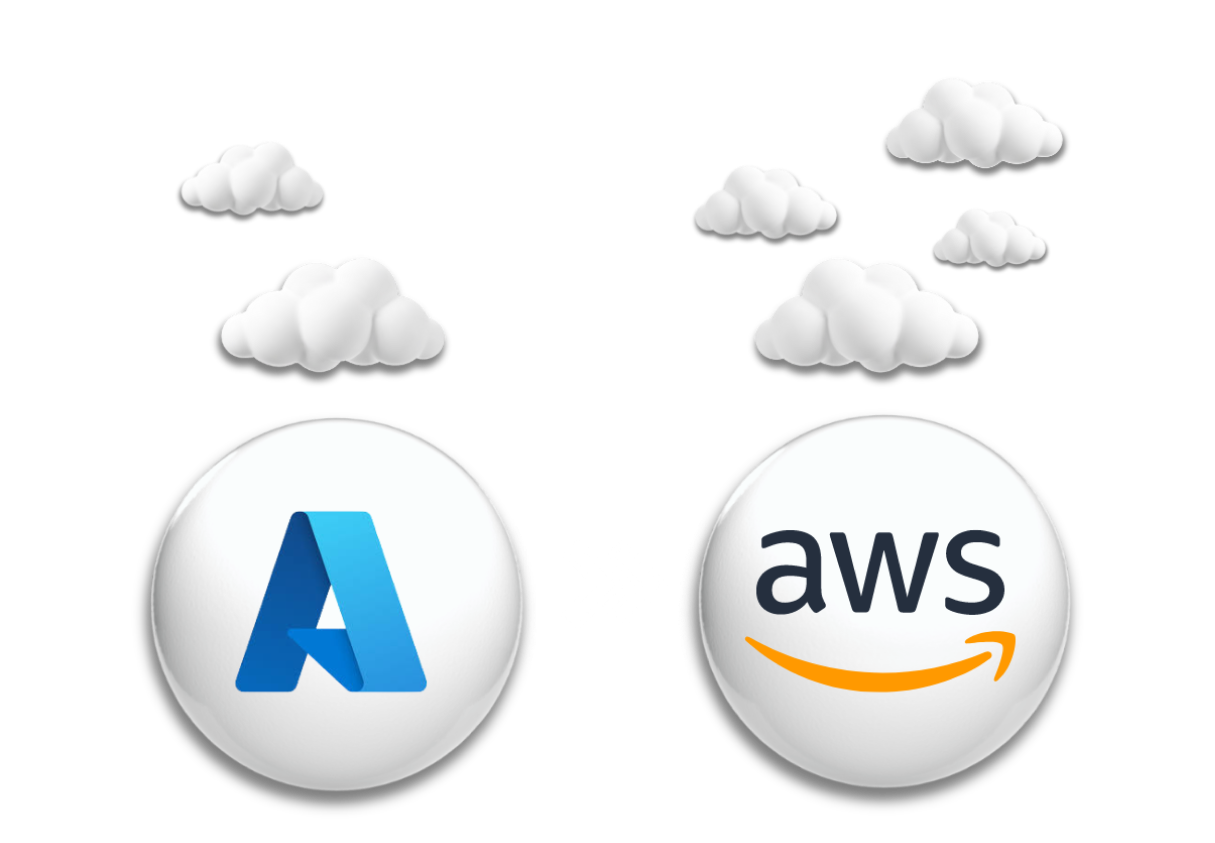The retail sector moves quickly, with customer preferences and market trends constantly evolving. For businesses in this space, having timely data can be the key to thriving rather than just surviving.
Managing, storing, and analyzing data is an exhaustive task many businesses struggle with daily. As the volume of data grows exponentially, finding efficient ways to handle this information becomes crucial for staying competitive. Your company might be facing several challenges, including:
- Rapidly changing consumer preferences with shifting trends and consumer demands.
- Inventory management to balance stock levels efficiently to meet fluctuating demand.
- Integration of omnichannel strategies to ensure a seamless shopping experience across online and offline platforms.
- Data security concerns to safeguard sensitive customer information against breaches.
Many companies, especially retail, rapidly adopt cloud technologies to address these challenges. Gartner predicts that by 2027, 70% of retail businesses will turn to cloud computing, seeking solutions to modern challenges. These technologies streamline data management and enable real-time insights that can transform business operations.
In this blog, we’ll examine cloud computing in detail, covering its benefits, different types, and the latest trends to help you understand how it can improve your business and customer service.
Types of Cloud Computing in Retail
Cloud computing is revolutionizing the retail industry by offering scalable and flexible solutions that enhance operational efficiency and customer experiences. Below, we explore the primary types of cloud computing utilized in the retail sector.
I. Retail Cloud Computing Services
| Cloud Service | Description | Best For |
| Infrastructure as a Service (IaaS) | Provides flexible computing resources like storage and servers on-demand without physical infrastructure. | You need to manage and scale hardware during peak sales or holidays. |
| Platform as a Service (PaaS) | Offers a platform for developing, running, and managing applications without the complexities of maintaining infrastructure. | You want to develop unique applications or services, like custom e-commerce solutions or in-store apps. |
| Software as a Service (SaaS) | Delivers ready-to-use software applications over the Internet, such as CRM systems and business analytics. | Your business values quick deployment and a subscription model to reduce upfront costs. |
II. Retail Cloud Computing Environments
| Cloud Environment | Description | Best For |
| Public Cloud | Features a shared infrastructure managed by a third-party provider, available over the Internet with a pay-as-you-go pricing model | You might need scalability and easy access without heavy investment in infrastructure. |
| Private Cloud | Dedicated cloud computing resources are hosted on private networks exclusively by one organization. | You require enhanced control, customization, and optimal data security for sensitive information. |
| Hybrid Cloud | Integrates on-premises infrastructure with cloud-based services, combining private and public cloud benefits. | You need to manage sensitive data onsite but want to use cloud services for other operations because of their scalability and cost efficiency. |
Current Trends in Retail: The Role of Cloud Computing
The retail industry is experiencing a significant shift, heavily influenced by consumer behavior and technological advancements. Some of the trends include:
- Consumer-Driven Influence: Today’s consumers actively shape market trends online. Reviews and social media play a crucial role in this dynamic, significantly impacting other consumers’ buying decisions. For example, a survey by BrightLocal found that 91% of consumers read online reviews for local businesses, highlighting the power of consumer feedback in shaping brand perceptions.
- Omnichannel Shopping: Customers expect a seamless shopping experience across all platforms, from online browsing to in-store purchases. Statista reports that omnichannel retailing will reach a market value of approximately $8 trillion by 2027, signifying the growing importance of a unified customer journey.
- Increased Online Research: Modern shoppers research products online before purchasing. 70% of retail shoppers conduct online research before buying a product, indicating the critical role of digital content in consumer decision-making.
- Technological Adoption and Cloud Computing: Retailers increasingly use advanced technologies, particularly cloud computing, to stay competitive. Cloud solutions enable businesses to scale and adapt more quickly, essential in an industry with traditionally thin margins. Gartner predicts that by 2025, over 95% of new digital workloads will be on cloud-native platforms, compared to just 30% in 2021, reflecting the rapid adoption of cloud technology in business operations.
- Digital Transformation: The push for digital transformation in retail is more robust than ever, driven by the need to meet the evolving expectations of tech-savvy consumers. This includes integrating AI for personalized shopping experiences and IoT for improved inventory management. A report by IDC forecasts that global spending on digital transformation technologies and services will reach $4 trillion by 2027, demonstrating the industry’s investment in modernizing operations.
Benefits of Cloud Computing in the Retail Industry
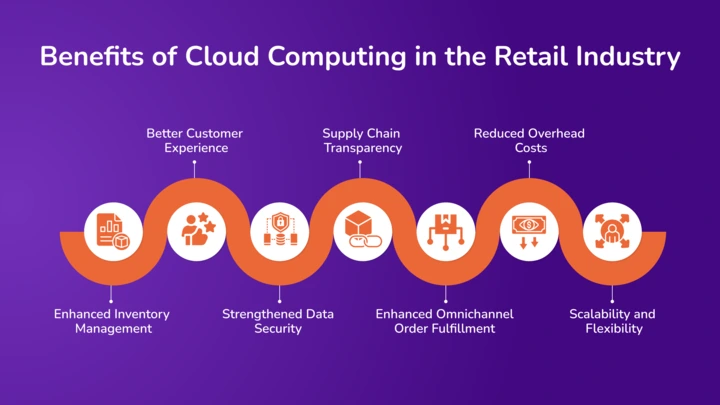
Cloud computing enables retailers to respond dynamically to market changes and consumer needs with agility and precision. Here is a closer look at some of the advantages of cloud computing in the retail industry:
Enhanced Inventory Management
Retailers, especially those with multiple store locations, often struggle with real-time inventory management. The inability to monitor and manage stock efficiently across various locations can lead to significant challenges, such as stock shortages or surpluses, impacting business operations and customer satisfaction.
Cloud computing transforms this challenge by providing real-time access to inventory data, enabling a comprehensive and up-to-date view of stock levels across all stores. This technology leverages cloud architecture and advanced analytics to facilitate predictive and prescriptive inventory forecasting. With these tools, retailers can anticipate stock needs more accurately, reducing instances of understocking and overstocking.
Benefits of Cloud-Based Inventory Systems
- Cloud platforms allow inventory data to be accessible anytime and anywhere, which is crucial for businesses with geographically dispersed locations. This accessibility helps in maintaining a consistent stock level across all stores without the need for manual synchronization.
- Integrating cloud computing with analytics enhances inventory management by providing insights that help make informed decisions. Retailers can utilize analytics to understand purchasing trends and predict future demand.
Better Customer Experience
Retailers face the challenge of deeply understanding customer behaviors and preferences to enhance loyalty and retention. With customers having more options and high expectations, even a couple of poor experiences can lead them to switch brands.
Cloud computing facilitates the adoption of AI technologies in customer relationship management (CRM) systems. These advanced systems collect and analyze vast customer data, from purchase history to advertising engagement. This data-driven approach allows retailers to offer personalized shopping experiences tailored to individual customer needs and preferences.
Benefits of Cloud-Based CRM in Retail
- By using AI and cloud technologies, retailers can predict customer behavior and personalize interactions, significantly enhancing the customer journey and satisfaction.
- Cloud CRMs provide real-time access to customer data, enabling retailers to make quick and informed decisions about marketing strategies and inventory management.
- Cloud computing enables the provision of personalized recommendations, special offers, and promotions that directly address customers’ interests and needs, fostering greater loyalty and reducing churn.
- With cloud systems, retailers can instantly access and track customer buying histories and order statuses, ensuring that every interaction is informed and responsive.
Strengthened Data Security
Retailers handle vast amounts of sensitive data daily, including sales transactions, inventory details, and customer information. Protecting this data is crucial, as security breaches involving personally identifiable information can lead to significant business disruptions and loss of consumer trust. Common threats include network infiltrations, DDoS attacks, and ransomware.
Cloud computing offers robust solutions to these security challenges. By storing data in the cloud, retailers benefit from advanced security measures such as encryption, sophisticated firewalls, event logging, and continuous security updates.
Benefits of Cloud-Based Data Security
- Cloud providers invest heavily in security technologies and personnel, ensuring that the latest security measures protect data. This level of security is often more comprehensive than what individual retailers can achieve with local servers.
- Unlike earlier IT environments, cloud services are continually updated to respond to new security threats. This proactive approach helps prevent data breaches and ensures compliance with data protection regulations.
- Cloud platforms are designed to provide high availability and data redundancy, which significantly reduces the risk of data loss due to hardware failure or cyber incidents
Supply Chain Transparency
Cloud-based solutions help mitigate common logistical issues such as stock-outs and overstocking by providing real-time data and analytics. This capability allows for precise inventory control and optimized delivery schedules, leading to more streamlined operations. According to a study by Accenture, companies utilizing cloud technology in their supply chain operations see an average cost reduction of 20% due to improved efficiency and decreased waste.
Enhanced Omnichannel Order Fulfillment
Maintaining high fulfillment accuracy in the dynamic retail environment is challenging, especially across multiple channels. According to a Gartner survey, only 95% of organizations achieve fulfillment accuracy rates. Retailers often struggle with misalignment of inventory levels and lack of visibility into real-time store operations, leading to missed sales opportunities and customer dissatisfaction.
Cloud technology addresses these challenges by integrating data across various platforms to provide a unified view of inventory and operations. This integration allows retailers to:
- The cloud can help identify the most suitable store locations for fulfilling specific orders, considering factors like proximity to the customer and inventory availability.
- Cloud platforms can enable real-time margin analysis to compare the profitability of different fulfillment options, such as picking up in-store versus shipping from a warehouse.
- Cloud solutions offer tools to predict accurate order-ready times by analyzing factors like current store activity and staff availability, improving the efficiency of in-store pickups.
Reduced Overhead Costs
Cloud computing presents a significant cost advantage by eliminating the need for extensive planning, procurement, and management of IT resources. Walmart’s adoption of a multi-cloud strategy has enabled optimal workload placement, saving millions in IT costs.
A significant benefit of cloud computing is the shift from capital to operational expenditure. Retailers only pay for their cloud resources, eliminating the need for large upfront investments in servers, hardware, and software. For instance, Marks & Spencer adopted cloud technology to improve IT flexibility and reduce costs by paying only for the services it needs, allowing the company to optimize its budget more effectively.
Scalability and Flexibility
Retail operations often fluctuate due to seasonal demands, promotions, and other factors. Cloud computing’s scalability allows retailers to manage their online platforms efficiently, ensuring they can handle increased traffic during peak periods without compromising performance. This flexibility in resource management ensures that retailers can adjust their infrastructure based on actual needs, optimizing costs and improving service availability during critical times.
Best Practices for Implementing Cloud Computing in Retail
Implementing cloud computing in retail can significantly enhance operational efficiency and customer engagement. Here are some best practices to ensure a smooth transition and maximize the benefits of cloud technology in your retail business.
- Conduct a Comprehensive Assessment
Begin by thoroughly evaluating your current systems to understand the scope of migration and identify potential challenges. Utilize technology consulting services to conduct a cloud readiness assessment, which includes data collection on current processes, estimation of time and resources for migration, and development of a detailed migration roadmap. This preliminary step is crucial for a smooth transition and strategic planning.
- Compare and Choose the Right Cloud Provider
Carefully evaluate various providers based on their features, pricing, reliability, and compatibility with your retail needs. Consider major providers like AWS, Azure, and Google Cloud Platform. Comparing these options will help you select a provider that best aligns with your business objectives and budget.
- Select the Appropriate Cloud Service Model
Determine which type of cloud service—SaaS, PaaS, or IaaS—best suits your business’s needs. Each model offers different levels of control, customization, and cost:
- SaaS: Offers easy deployment and lower upfront costs but limited customization.
- PaaS: Provides more control and tools for development with moderate maintenance needs.
- IaaS: Allows maximum control and customization but requires significant management and higher costs.
- Educate and Train Your Team
Early and ongoing training for your staff is essential to effectively leveraging cloud computing. Educate your team about the new systems to minimize resistance and enhance adaptation.
The Future of Cloud Computing in the Retail Industry
Gartner analysts predict that by 2025, over 85% of organizations will adopt a cloud-first approach and need cloud-native architectures and technologies to implement their digital strategies fully. AI, blockchain, and edge computing are making a big splash in retail, helping improve everything from how products get from A to B to how customers shop and interact. Cloud-enabled AI and augmented reality create personalized and immersive shopping experiences, boosting customer engagement and satisfaction.
Real-World Examples of Cloud Computing in the Retail Industry
I.Zara’s Smart Inventory Management
Zara has used cloud computing to transform its inventory management. Using cloud-based AI, Zara can predict fashion trends, adjust stock levels in real time, and streamline its global supply chain. This smart use of technology keeps customers happy by ensuring their favorite items are always available while reducing costs by cutting down on excess stock.
II.Walmart’s Enhanced Data Analytics
Walmart utilizes cloud computing to improve its data analysis and customer service. The cloud allows Walmart to handle vast amounts of data to understand customer shopping behaviors. This helps Walmart tailor shopping experiences and keep operations smooth across all its stores, ensuring they can provide excellent service worldwide.
III. Enhancing E-Commerce with PietraStudio and AWS SageMaker
PietraStudio, a leader in e-commerce solutions, teamed up with Avahi to enhance their online offerings using AWS SageMaker. The project involved analyzing and fine-tuning AI models like Stability Diffusion and DALL-E to find the best fit for PietraStudio’s needs. Avahi helped set up the cloud environment, fine-tune the AI models, and analyze results. This partnership led to better creative content and improved operational efficiency, meeting business goals and customer expectations.
These examples show how retail cloud computing is used to innovate, boost efficiency, and enhance customer interaction.
Start Your Cloud Journey with Avahi
Avahi specializes in delivering innovative cloud solutions that address your unique business challenges. As your dedicated AWS Cloud Consulting Partner, we are committed to simplifying your cloud journey through seamless adoption, migration, and application modernization.
Our Services Include:
- Adoption and Migration: Migrate your legacy applications or workloads to AWS for enhanced reliability, scalability, and performance.
- DevOps: Unlock the power of your data with advanced analytics and machine learning capabilities.
- Cloud Staffing Services: Access top-tier talent to support and drive your cloud initiatives, ensuring a seamless and effective cloud transformation.
Want to explore how Avahi can help you simplify, modernize, and excel in your cloud journey.

